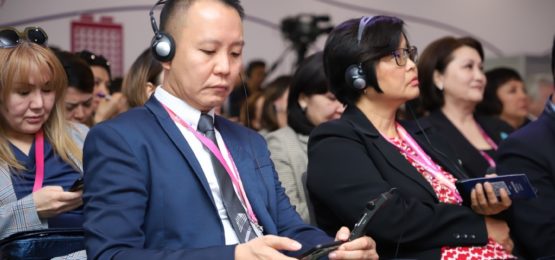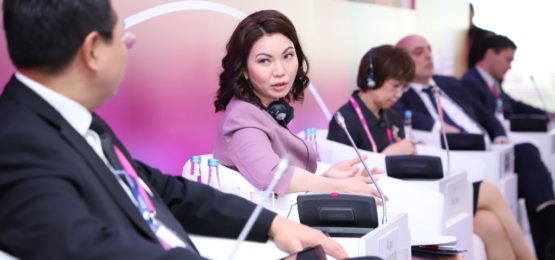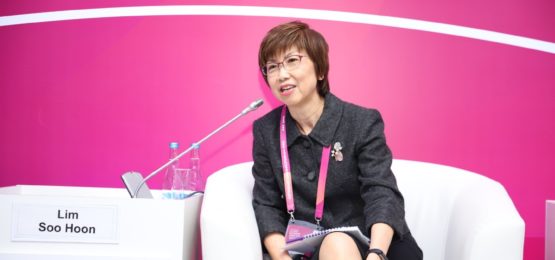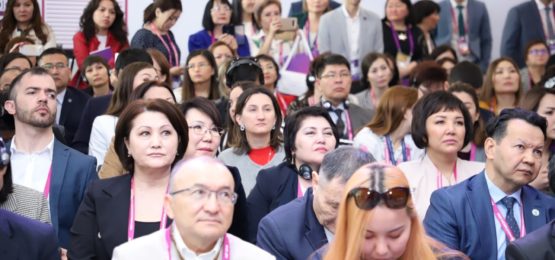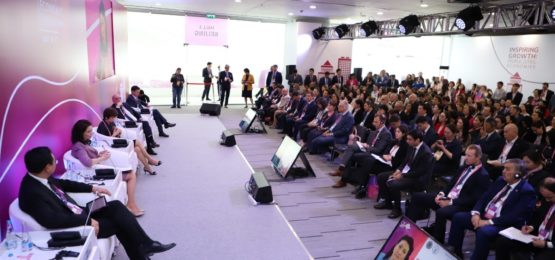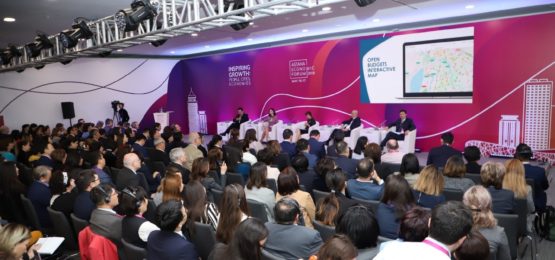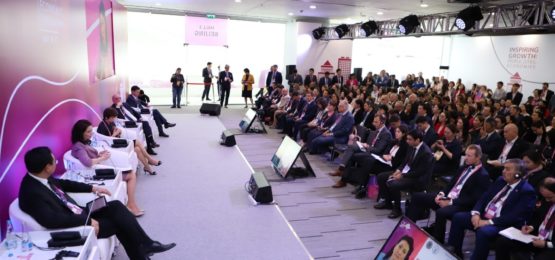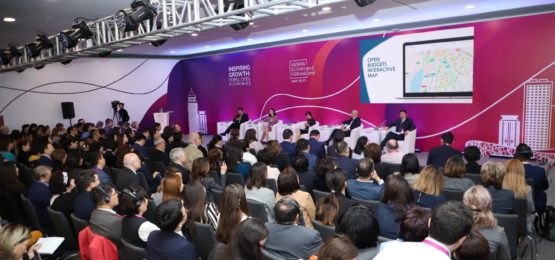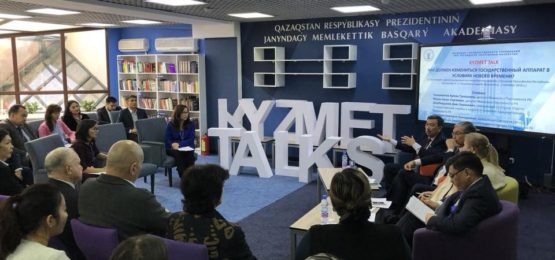2016
1. Канадский опыт по подготовке госслужащих.
2. Национальный институт развития человеческих ресурсов (NHI).
3. Опыт Гарвардского университета, Университета Дьюк по повышению квалификации сотрудников.
2017
1. Сменяемость на государственной службе.
2. Совершенствованию подходов к оценке деятельности государственных органов по направлению «Управление персоналом» с учетом новых практик и зарубежного опыта.
3. Автоматизация государственной службы.
4. Подведомственные организации.
5. Передача функций из государственного аппарата.
2018
1. Оптимизации государственного аппарата, научное обоснование и международный опыт.
2019
1. Chronology of digitalization of state governance in Kazakhstan, Zhomart Medeuov ↓:73
2. Делиберативная демократия как основа концепции «слышащего государства», Е. Оспан ↓:66
2020
1. Предложения по организации дистанционной работы для государственных служащих, А. Алдиярова ↓:35
2021
1. Планирование двухсторонних инвестиционных договоров Центральной Азии, А. Алдиярова ↓:15
2022
2. Цифровая дипломатия, Шерьязданова К.Г. ↓:129
2023
2017
1. Управление городом: обзор мирового опыта.
2018
1. Оптимизация персонала в государственном аппарате Front Office vs. Back Office.
2. Программа правительства Великобритании для недавних выпускников – Civil Service Fast Stream.
2019
1. Review of personnel management policies in the public service of Japan, M.Karybzhanova ↓:31
2. International experience in preventing corruption in the public service, N. Agubaev ↓:16
2020
2022
1. Международный опыт ротации, Мусатаева А.А., Шерьязданова К.Г., Нурбек К.Х. ↓:35
2. Модель слышащего государства: анализ международного опыта, Шерьязданова К.Г. ↓:33
3. Международный опыт формирования имиджа государственного служащего, Шерьязданова К.Г. ↓:42
4. Международный опыт ротации дипломатических кадров, Шерьязданова К.Г. ↓:23
1. Презентация «Роль ШОС в сотрудничестве стран Центральной Азии» в Шанхайский университет политических наук и права. 27 октября 2017 г. Автор: Алмаш А.Ж. ↓:47
2. Доклад «A Role of Public Administration in Managing of the ‘Global Mobility Regime’ and the new migration trends in Kazakhstan» на 3-ей ежегодной международной конференции Международной ассоциации исследований Шелкового пути (IASS). 10-11 ноября 2017 г. Вьетнамский национальный университет социальных и гуманитарных наук, Хо Ши Мин, Вьетнам. Автор: Бастаубаева А.Ж.
5. Презентация «Истина и метод: в поисках нового знания». 3 сентября 2018 г. Автор: Ж. Медеуов ↓:22
1. Белесова Н.А. Основные вопросы служебной этики государственных служащих в условиях современности // Интеллектуальное лидерство: новый этап в развитии Казахстана. Сборник международной конференции для молодых ученых. В 2-х т. Т.1. Астана: АГУ, 2016.
2. Менеджмент в сфере государственной службы. Настольная книга руководителя государственного органа Республики Казахстан. Астана, 2017.
3. Bastaubayeva А. Refugee protection policy in the global world: focused on recognizing policy of asylum seekers in Germany and the United Kingdom // Государственное управление и государственная служба. 2017. №2.
4. Казбек Б.Е. Сравнительный обзор международного опыта цифровизации государственных услуг // Государственное управление и государственная служба. 2017. №4.
5. Алмаш А.Ж. Роль цифровой коммуникации в дипломатии и цифровая дипломатия Казахстана // Государственное управление и государственная служба. 2017. №4.
12. Агубаев Н.Ж. (15 декабря 2022) Желтоксан глазами очевидца. Обзорно-аналитический журнал «Exclusive» ↓:66
2017 | ||
Digest №1 ↓:24 Digest №2 ↓:23 Digest №3 ↓:23 Digest №4 ↓:21 Digest №5 ↓:25 Digest №6 ↓:28 Digest №7 ↓:19 Digest №8 ↓:20 Digest №9 ↓:23 Digest №10 ↓:34 | Digest №11 ↓:33 Digest №12 ↓:26 Digest №13 ↓:26 Digest №14 ↓:20 Digest №15 ↓:20 Digest №16 ↓:23 Digest №17 ↓:21 Digest №18 ↓:21 Digest №19 ↓:27 Digest №20 ↓:23 | Digest №21 ↓:73 Digest №22 ↓:24 Digest №23 ↓:25 Digest №24 ↓:25 Digest №25 ↓:33 Digest №26 ↓:38 Digest №27 ↓:29 Digest №28 ↓:22 Digest №29 ↓:32 Digest №30 ↓:24 |
2018 |
Digest №31 ↓:19 Digest №32 ↓:28 Digest №33 ↓:23 Digest №34 ↓:28 Digest №35 ↓:24 Digest №36 ↓:17 Digest №37 ↓:21 Digest №38 ↓:22 Digest №39 ↓:19 Digest №40 ↓:24 Digest №41 ↓:23 Digest №42 ↓:23 Digest №43 ↓:22 Digest №44 ↓:25 Digest №45 ↓:30 Digest №46 ↓:21 |
2019 |
Digest №47 ↓:28 Digest №48 ↓:30 Digest №49 ↓:69 Digest №50 ↓:21 Digest №51 ↓:24 Digest №52 ↓:20 Digest №53 ↓:24 Digest №54 ↓:27 |
2020 |
Digest №55 ↓:20 Digest №56 ↓:18 Digest №57 ↓:18 Digest №58 ↓:21 Digest №59 ↓:21 Digest №60 ↓:19 Digest №61 ↓:13 Digest №62 ↓:15 Digest №63 ↓:12 Digest №64 ↓:15 Digest №65 ↓:17 Digest №66 ↓:15 |
2021 |
Digest №67 ↓:16 Digest №68 ↓:17 Digest №69 ↓:16 Digest №70 ↓:15 Digest №71 ↓:18 Digest №72 ↓:16 Digest №73 ↓:12 Digest №74 ↓:13 Digest №75 ↓:16 Digest №76 ↓:17 Digest №77 ↓:18 Digest №78 ↓:19 |
2022 |
Digest №79 ↓:15 Digest №80 ↓:14 Digest №81 ↓:17 Digest №82 ↓:14 Digest №83 ↓:15 Digest №84 ↓:18 Digest №85 ↓:23 Digest №86 ↓:13 Digest №87 ↓:20 Digest №88 ↓:16 Digest №89 ↓:13 Digest №90 ↓:16 |
2023 |
Digest №91 ↓:22Digest №92 ↓:17 Digest №93 ↓:17 Digest №94 ↓:15 Digest №95 ↓:14 Digest №96 ↓:29 |
1. Digitalization as a Mechanism for Reducing Corruption Risks: An analysis of Estonia and Georgia cases ↓:24
2. The Role of ICT in corruption ↓:27
3. A critical analysis of international corruption ranking methodologies ↓:15
4. An analysis of public procurement corruption ↓:16
5. Information material on the results of the World Bank’s Enterprise Surveys study in the Republic of Kazakhstan ↓:15
6. Crowdsourcing in the anti-corruption system: the experience of foreign countries ↓:12
7. Information material on the Global Competitiveness Report of Kazakhstan for 2016-2017 ↓:43
8. Information and communication technologies as an effective anti-corruption tool ↓:23
9. International Corruption Research Experience ↓:31
10. Scientific and practical recommendations ‘Improving the system of assessing the quality of civil services on the practical experience of Canada’ ↓:16
11. Report on the anti-corruption culture of university students 2015 ↓:30
12. Manual “Ethics and standards of behavior of civil servants” ↓:98
13. Collection of materials on the study of foreign anti-corruption experience ↓:16
14. The role of modern technology in countering corruption ↓:46
15. Analysis of the results of surveys on the results of preventive anti-corruption measures 2016 ↓:18
16. Analysis of the results of surveys on the results of preventive anti-corruption measures 2017 ↓:16
17. Analysis of the status and trends of corruption at the international and national levels ↓:19
18. Kazakhstan in international rankings ↓:13
Expert platforms
“Global Challenges Summit”:
results of the session of the Astana Economic Forum on May 17-19, 2018
Within the framework of the Astana Economic Forum, the Academy annually holds a conference with the participation of representatives of international non-governmental organizations, foreign partners from the EU and EAEU countries, representatives of the Asian Development Bank, the Organization for Economic Cooperation and Development, member-states of the Astana Civil Service Hub.
In 2018, the conference consisted of two panel discussions on the following topics:
1) «The practice and challenges of public administration in the digital era»
The purpose of this panel discussion is to give a clear idea of the key strategies and successful practices of public administration in the era of digitalization, to identify priority goals and development objectives for Kazakhstan, to consolidate the efforts of government agencies, the expert community, non – governmental organizations in the realization of the tasks.
2) «Skills and leadership for digital governance»
Key questions of the panel discussion: what skills should a civil servant have in the era of digital transformation of society? What kind of leadership should he or she demonstrate in the competition with artificial intelligence? What should the government do in terms of education, training, personnel policy?
In total, more than 270 people took part in the panel discussions. Among them are representatives of more than 15 countries, including great Britain, Israel, Kyrgyzstan, Macedonia, UAE, Republic of Korea, Russia, Singapore, USA, Tajikistan, Estonia, UNDP representatives, heads of diplomatic missions of Armenia, Belarus, Belgium, Georgia, etc.
The participants from the Academy were 100 people (including master and doctoral students), including 30 representatives from 15 regional branches of the Academy.
Within the framework of the AEF 2018, guest lectures with the participation of Kevin Chong(16 may) and Scott Fargher were held for master, doctoral students and faculty members of the Academy.
In addition, on May, 16 Kevin Chong and Scott Farger sere interviewed for the national channel “Atameken”.
Also on May, 17, an expert meeting was held with the participation of the Chairman of the Agency of the Republic of Kazakhstan for Civil Service and Anti-Corruption Affairs A. Shpekbayev, rector of the Academy F. Zhakypova, foreign experts A. Melikishvili, O. Golovenko (IHS Global Insight), M. Lambertson (The Economist Intelligence Unit).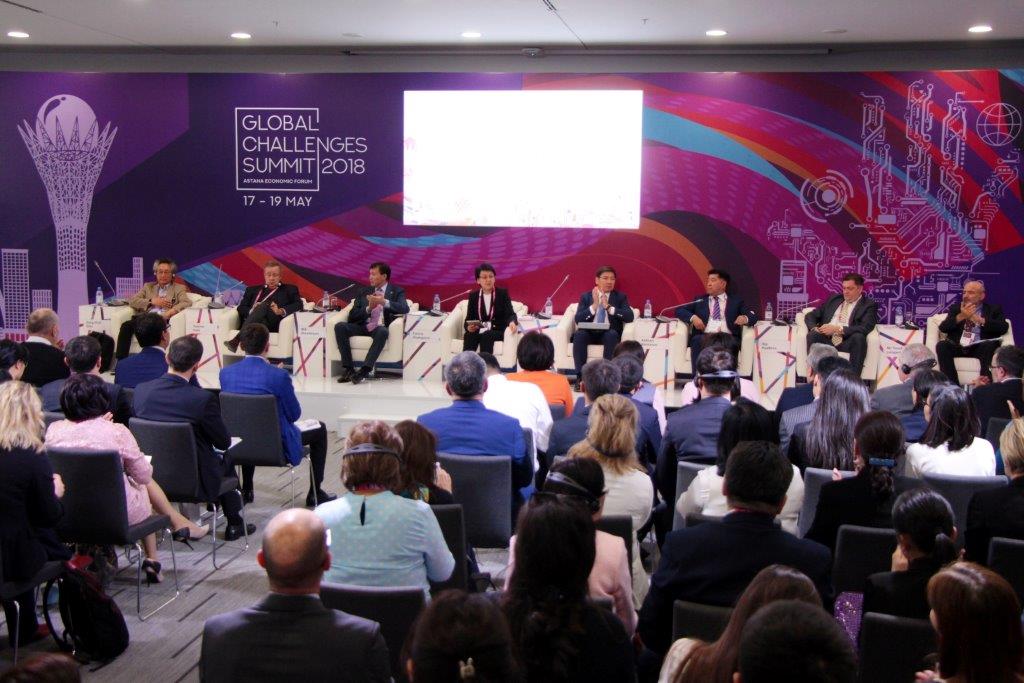
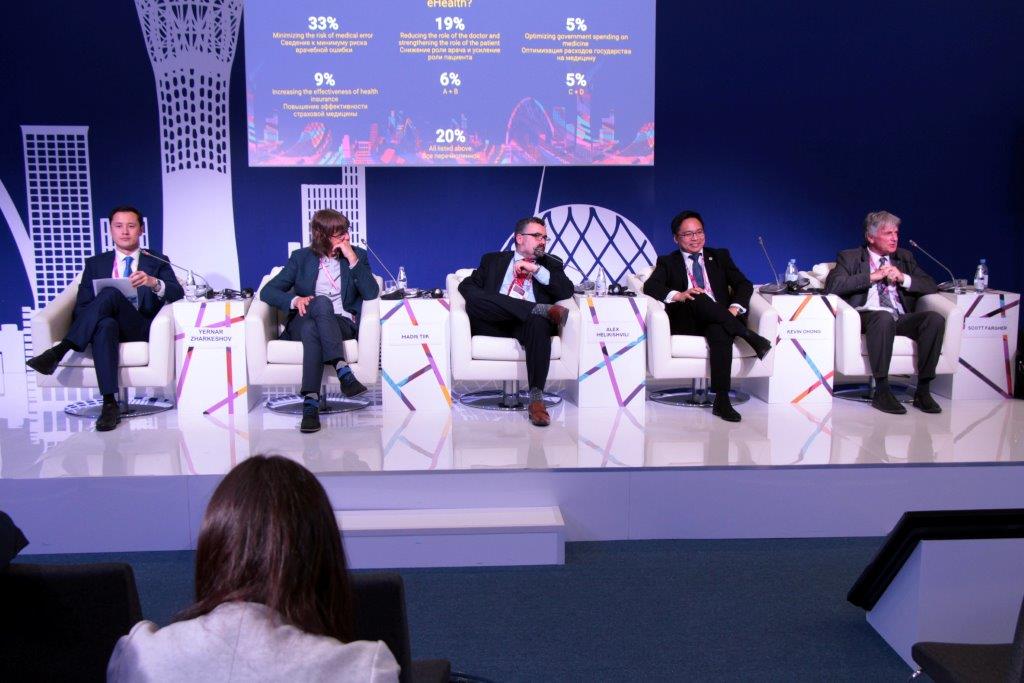
“TRANSFORMATION LEADERSHIP IN A CHANGING WORLD”:
results of the session of the Astana Economic Forum on May 16-17, 2019
In the modern world exposed to global challenges, the consolidating role of the state is only growing. The training of “Brand-new Leaders”, capable of solving complex tasks, is a topical agenda for any national government. The key issues of the “Transformational Leadership in a Changing World” global conference are the portrait of a civil servant, required skills and qualities to meet the challenges of the modern world and become a reform facilitator in Kazakhstan.
Shaimova Aigul, Deputy Chairman of the Agency of the Republic of Kazakhstan for Civil Service Affairs and Anti-Corruption, told about how the success of any reform directly depends on the professionalism of employees. In this context, the key requirement that the Agency places on government officials is achieving tangible results for the benefit of society. This is the main criteria by which the work of the state apparatus is now evaluated.
Lim Soo-Hoon, Senior Advisor at the Ministry of Finance of Singapore, spoke about Singapore’s experience in developing future civil service leaders, especially in such areas as: scenario planning as a tool to predict change and present the future; encouraging a culture of public service that is receptive to change; using e-government to implement change; customer satisfaction with government services; and the rational use of the country’s resources.
Garegin Manukyan, Senior Officer and Public Administration Officer, Department of Public Administration and Digital Management, United Nations Department of Economic and Social Affairs, touched upon the history of writing and
2030 Agenda on Sustainable Development Goals (SDGs).
The highlights of the global SDGs 2030 are:
– Transformational leadership in public administration as a channel for achieving sustainable development;
– Creation of strong, effective civil institutions and structures;
– The need for professional civil servants as a generator for sustainable development;
Marat Atnashev, Rector of the Moscow School of Management SKOLKOVO, noted the importance of entrepreneurial leadership in the new global environment. On a global scale, the growth of economic indicators provided a positive basis for business growth. In this trend, more than one generation of leaders has grown up, bringing Western examples of rapid growth and laid the foundation for the teachings of world business schools. In the current economic conditions, it is obvious that the previous postulates and images of the leader do not cope with new challenges. Businesses need leaders who are not used to the standard ways to grow. And this is no longer a corporate leader, but more entrepreneurial.
Atnashev gave an example of their school educational project for the preparation of mayors of monotowns. According to him, no mayor, even with the best training, is able to solve the problem of a town alone. He must do this together with business and society. Therefore, representatives of city-forming enterprises and public organizations were invited to the courses. It came to curiosities when the mayor of a single-industry company and the director of a town-forming enterprise first personally got acquainted during SKOLKOVO courses.
William Moser, the US Ambassador Extraordinary and Plenipotentiary to the Republic of Kazakhstan, spoke about how to lead and inspire his team.
Today permanent internal and external changes are the norm. The practice of eliminating “walls” between functional units within the organization “without borders” has become widespread. Further development of organizational theory and practice occurs as a result of increased flexibility of systems, adaptation to environmental conditions, which is largely determined by changes in the system of social values, and rethinking the meaning (increasing role) of horizontal links of command chains.
Along with the changes there is a need to adapt people who need to work in newly formed groups and more quickly enter new situations. Organizations need people who do quality work from the very beginning of change, help others do it, quickly create an atmosphere of cooperation and encourage others to do their job better.
Datuk Chris Tan, managing director of PEMANDU Rus LLC, presented the theory that the key to great and fast results is complete Behavioral Transformation. This is his idea of the concept of action. It is necessary to take practical steps that change reality, and not to describe it in their plans and expectations, endlessly coordinating them with the plans and expectations of others. In support of his thoughts, Datuk cites a historical example of Moissey or a more modern example of the mayor of Moscow, Sobyanin.
At this stage of development, completely new professions, unclear definitions of sectors appear and people constantly need to reorganize their lives. It is time for a new configuration of concepts, to open up the idea of zoning – which in the personality of the leader. And at the core of these processes are the people and relationships between them.
Sepp Verheyen, manager of innovation and special initiatives for the Emirates Diplomatic Academy, outlined the main leadership skills of the 21st century. According to Verheyen, a competitive advantage will be given to those specialists who not only possess professional skills, but also possess soft skills – “creative, and planned, and other types of thinking.” It is important not only “to think in a modern way”, but also “to accumulate knowledge from completely different fields of science”, to be able to combine them effectively and apply them in solving the tasks set. The value of the “skills of the 21st century” is that they allow you to navigate in a rapidly changing world in different disciplines and technologies better.
Zhanar Tayzhanova, Head of the Center for Development of Project Management at the Academy of Public Administration under the President of the Republic of Kazakhstan, Head of the Republican Project Office “Adaldyk Alany” spoke about the public’s ability to control, detect and prevent corruption. According to her, the main task of civil society is to carry out public participation in the process of preparing, discussing, adopting and controlling the implementation of state decisions.
First Panel session video
Second Panel session video
«Astana – 20 years of development: new impulses of public administration»
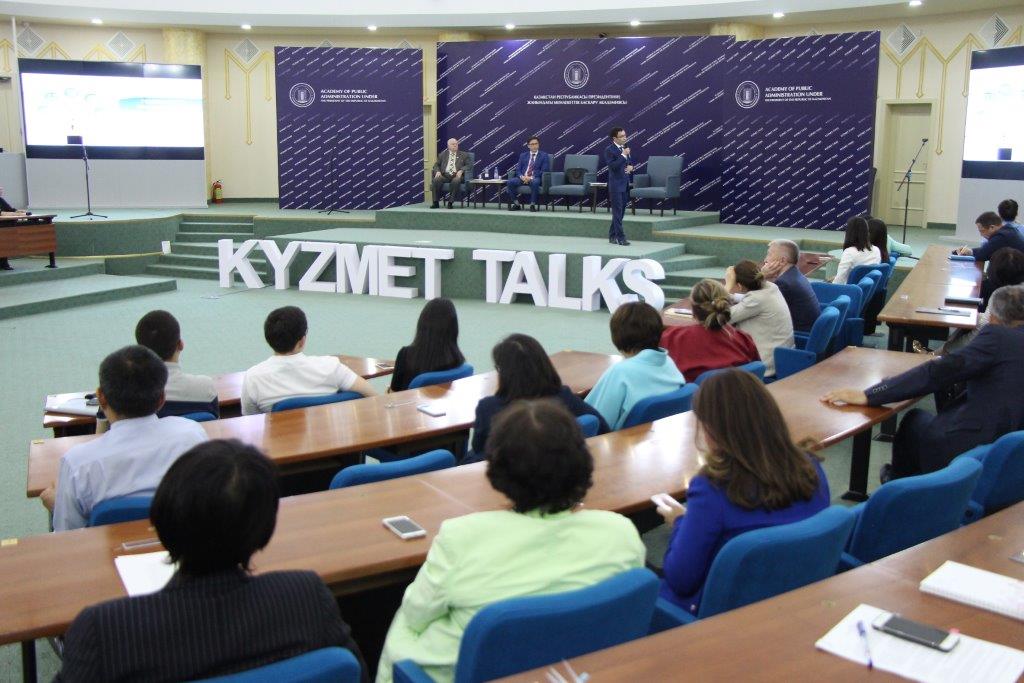 KYZMET TALK is a discussion platform that provides an opportunity for an informal exchange of views on topical issues of public administration and civil service.
KYZMET TALK is a discussion platform that provides an opportunity for an informal exchange of views on topical issues of public administration and civil service.
The experience of communication with civil servants shows that many aspects of decisions remain “behind the scenes” and do not allow to understand its “internal cuisine”. The platform KYZMET TALK aims to lift the veil on how big politics is done.
The mission of KYZMET TALK is to shorten the distance between people who make decisions and those who are learning to do that.
The first conference of KYZMET TALK was held on June, 25, 2018, on topic «ASTANA – 20 YEARS OF DEVELOPMENT: NEW IMPULSES OF PUBLIC ADMINISTRATION».
The topic of the conference, dedicated to the 20th anniversary of Astana, is devoted to the formation of public administration and civil service in the country from the first years of independence to the present day. The speakers reflected on various aspects of this topic, the main idea of which was the understanding that one of the decisive conditions for the sustainable development of Astana, and the whole country is constantly increasing the level of effective public administration.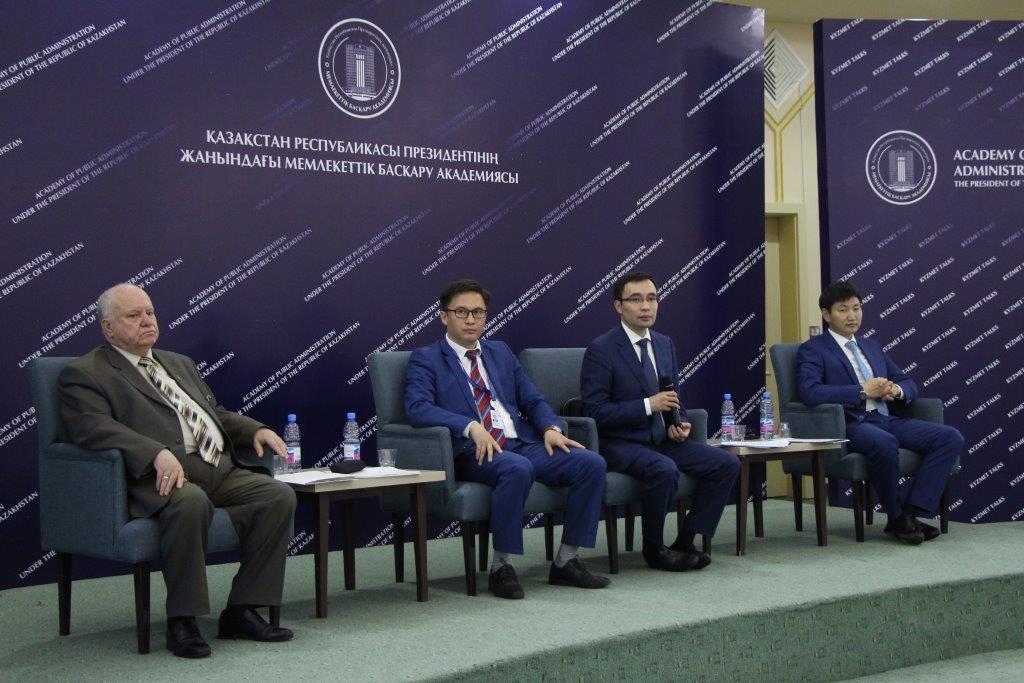 The speakers of the conference:
The speakers of the conference:
Burlakov Leonid Nikolaevich – Professor of the Institute of Management of the Academy of Public Administration under the President of the Republic of Kazakhstan with a topic: «Astana as a locomotive of sustainable development of Kazakhstan». Abdykadyrov A.E. – Head of the Investments and development department of Astana city with a topic: «Astana: 20 years of development». Mukhametkaliev Rinat Zakievich – Deputy Head of the Civil Service and Human Policy Department of the Presidential Administration of the Republic of Kazakhstan with a topic: «Formation and improvement of the Institute of administrative corps of civil servants: the experience of the Republic of Kazakhstan». Tleukenov Zharkyn Oralkhanovich – Director of the Public Service Department of the Agency of the Republic of Kazakhstan for Civil Service and Anti-Corruption Affairs with a topic: «Formation of professional public administration». The meeting was moderated by Aigul Kosherbayeva – Director of the Applied Research Institute of the Academy of Public Administration under the President of the Republic of Kazakhstan.
The Academy of Public Administration under the President of the Republic of Kazakhstan plans to hold a TEDx format conference – KYZMET TALK on a regular basis as a platform for a mutually beneficial exchange of opinions, ideas, suggestions among professionals, experts and scientists.
«Point score and scale factor: expectations and realities»
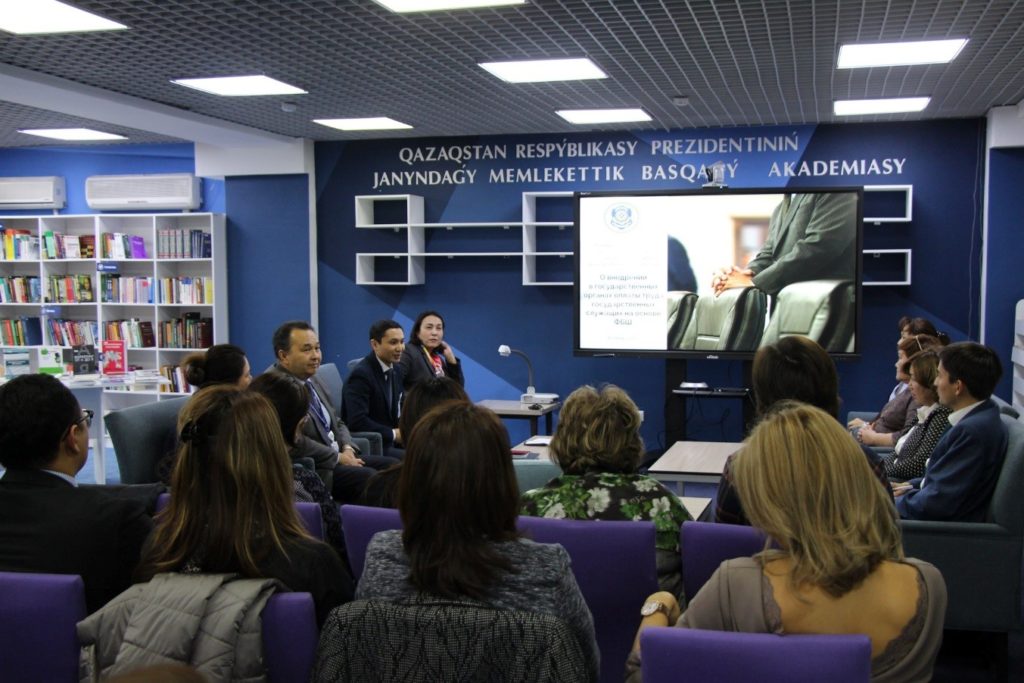
On October 18 of this year, at the Academy of Public Administration under the President of the Republic of Kazakhstan, a regular expert meeting was held as part of the #KyzmetTalk discussion platform on the “Point score and scale factor: expectations and realities”.
The purpose of the meeting was to discuss topical issues in the field of public service, including:
— How to build a fair wage system?
— Experience of implementing a point score and scale factor in the public service.
— The best domestic practices in the non-public sphere and international experience.
The speaker of the event was Zhandos Khasen, head of the department for motivation and evaluation of the AHAPA.
Representatives of the Ministry of Public Development, the Ministry of Energy and other government agencies, as well as research institutes participated in the expert meeting. In addition, students of the Academy participated in the meeting.
The meeting was moderated by Aigul Kosherbaeva, Vice-Rector for Strategic Development, Research and International Partnership of the Academy.
«How should the state apparatus change in the conditions of the new time?»
On October 23, at the Academy of Public Administration under the President of the Republic of Kazakhstan, an expert meeting was held on “How should the state apparatus change in the conditions of the new time?”. The meeting was organized in the framework of the #KyzmetTalk discussion platform.
The speakers were the deputies of the Majilis of the Parliament of the Republic of Kazakhstan Arman Kozhakhmetov and Kanat Musin, the Head of the Public Service and Personnel Policy Division of the Presidential Administration Diyas Dzhubandykov, the Head of Sector for Strategic Studies and Analysis of the Presidential Administration Svetlana Gamarnik.
As part of the discussion, the following issues were voiced:
- transformation of public service, where the priority should be the satisfaction of social needs, openness, accessibility and competence;
- professional development of civil servants and promoting their self-development;
- enhance the image of public service.
International Think Tanks:
U4 Anti-Corruption Resource Centre
International Anti-Corruption Academy
European Research Centre for Anti-Corruption and State Building
Corruption Research Center Budapest
Center for Strategic and International Studies (CSIS)
Basel Institute on Governance – Governance and Anti-Corruption
Innovations for Successful Societies – Anti-Corruption (Princeton University)
Sussex Centre for the Study of Corruption (University of Sussex)
Foreign Corrupt Practices Act Clearinghouse (Stanford Law School)
Internet Center for Corruption Research
